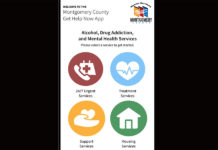People who have become addicted to substances such as alcohol, marijuana, or cocaine find it difficult to be sober and seek drug rehabilitation. The process of drug rehabilitation involves a number of methods, such as detoxification, group therapy, psychotherapy, residential treatment centers, and outpatient programs. Most drug rehabilitation centers treat addiction by helping addicts overcome withdrawal symptoms, alter behavioral patterns, and deal with long-term medical conditions. While detoxing from hard drugs, however, patients can often receive outpatient drug rehabilitation treatments without necessarily going through detoxification.
Drug detoxification means removing the substance from the body. Detox programs are designed to remove the drug from the body in a controlled environment such as a hospital or nursing home. When patients receive treatment for their substance abuse, they undergo several detoxification steps to remove the drug from the body. They usually take either IV or non-intravenous medications to reduce the effects of the drug. In non-invasive detox, the patient may go through a detoxification program at home, while in IV detox he or she may take medication through a vein. When detoxing, the patient is given a regimen of medication to help them feel better, such as sedatives, and may also undergo a physical examination to determine if they are suitable for detoxification.
After receiving detox programs, a patient may be given counseling to help them deal with their drug-related issues. Drug rehabilitation centers usually offer individual or group counseling and psychotherapy sessions to help patients overcome drug addiction. After successful completion of a detox program, patients typically continue through outpatient programs to maintain sobriety, in addition to maintaining their new lifestyle. Many people choose to enter into long-term residential drug rehabilitation programs, as these programs allow patients to live at a treatment center rather than in a group house or hotel. Treatment centers can also give patients the support they need to avoid relapse by providing group therapy, family counseling, and job and recreation assistance.











